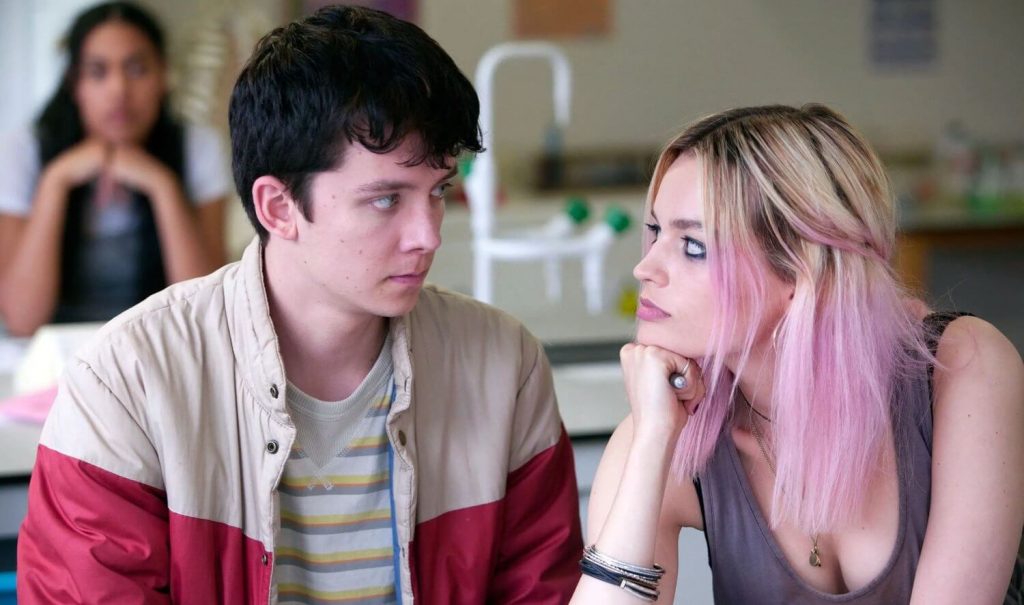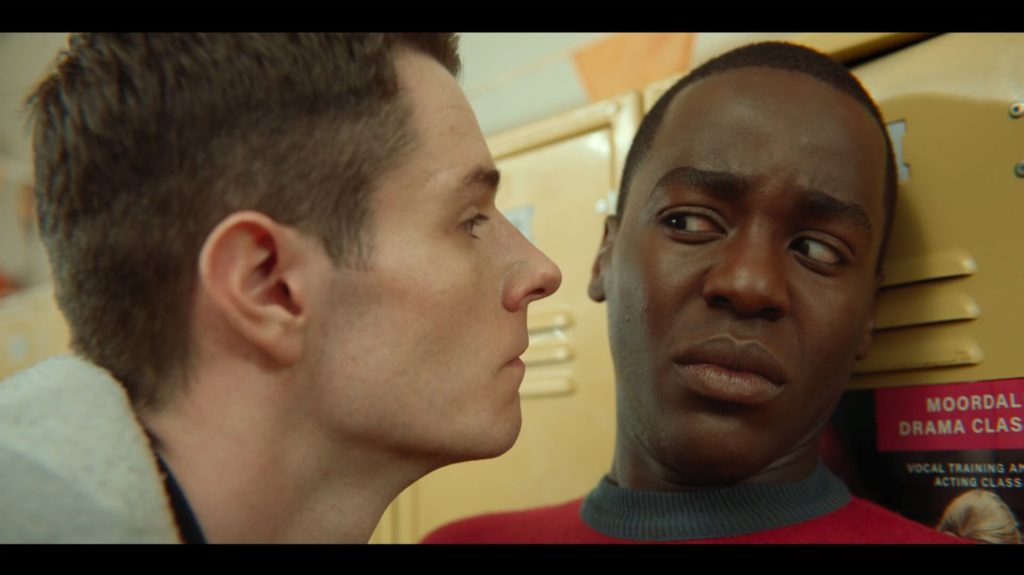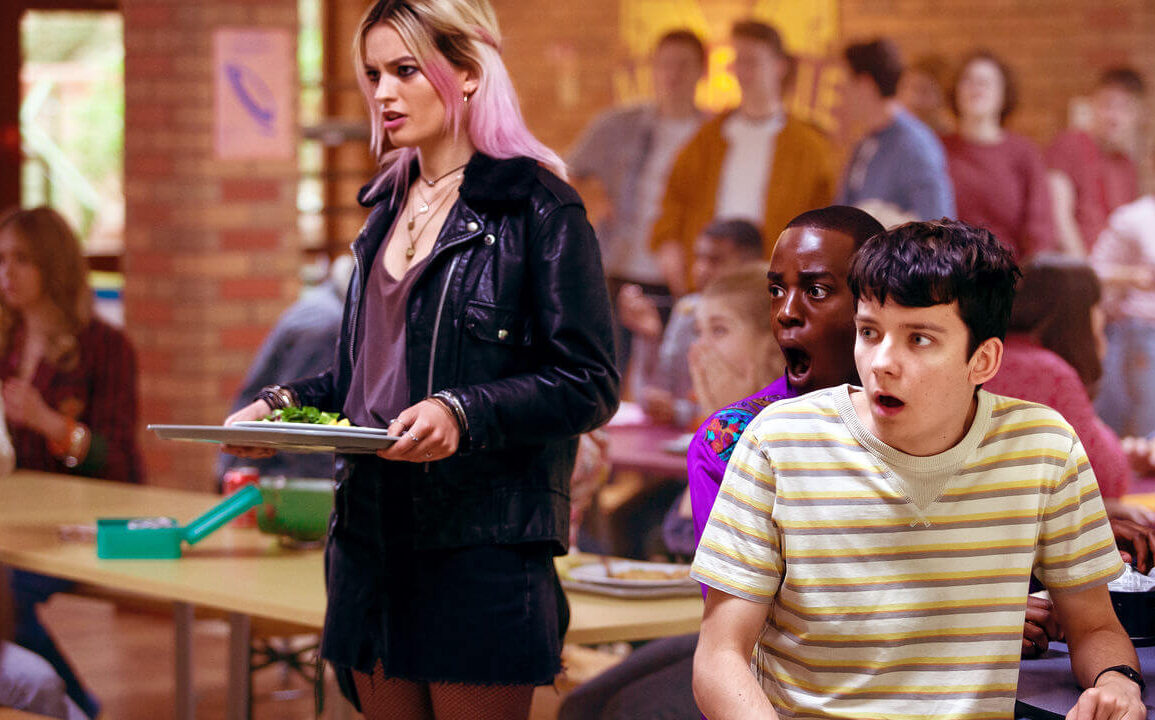Worthless to say, we have all gone through those days. Those days, you know, the days where, you know, you went to bed doubting yourself, doubting and burdening yourself with performance anxiety. Am I ready? Is my body ready? When should I do it? What should I do? How should I do it? The big WHEN WHAT and HOW have lead us all to too many sleepless and bed tossing nights. What is this IT and why is there so much confusion surrounding it, there surely must be some way to clear the air, isn’t there?
In this modern age of the 21st century, where we have machines as our slaves and internet at a click away and have spaceships reaching the moon and beyond, we still haven’t progressed enough to talk openly about the physical desires of humans or sexual intercourse. SEX, a three-letter word raising a million thoughts in our minds, and sex education, a luxury. Providing you some insight into this rare and luxuries piece of knowledge, Laurie Nunn brings to you a Netflix original series “Sex Education” premiered on Netflix on 11 January 2019. A British comedy-drama web television series, sex education stars Asa Butterfield, Emma Mackey, Ncuti Gatwa, Gillian Andreson, Connor Swindells and many more as the central characters.
 Asa Butterfield plays the role of 16-year-old virgin boy Otis Milburn, an awkward sickly looking timid boy, who prefers to stay in a corner away from all the hustle bustle and often struggles with the fact that his mother is a sex therapist. Jean Milburn, played by Gillian Andreason is the mother of Otis who is a sex therapist by occupation and pries a little too much into the sexual activeness of her son. Otis with his best friend Eric leads a life too ordinary until he meets this smart and edgy classmate Maive Wiley played by Emma Mackey, and they both team up to start their own health clinic.
Asa Butterfield plays the role of 16-year-old virgin boy Otis Milburn, an awkward sickly looking timid boy, who prefers to stay in a corner away from all the hustle bustle and often struggles with the fact that his mother is a sex therapist. Jean Milburn, played by Gillian Andreason is the mother of Otis who is a sex therapist by occupation and pries a little too much into the sexual activeness of her son. Otis with his best friend Eric leads a life too ordinary until he meets this smart and edgy classmate Maive Wiley played by Emma Mackey, and they both team up to start their own health clinic.
Otis stumbles upon the realization that he has the ability to help people with their sexual encounters and relationship problems and how to deal with it. Ncuti Gatwa, playing the role of a black gay high school student and Otis’s best friend Eric, tries to find a path for himself and create an identity of his own, dealing with his sexuality in a place where a human is seldom treated humanely. Another character who shines out in the series, not because of his strengths but his weaknesses is Adam Groff, son of the school headmaster, played by Connor Swindells. A tall, handsome, good built Adam suffers from lack of self-confidence and self-esteem thanks to his father’s baggage of disappointments in him.
Adam Groff plays a role that changes its course all through season 1 and is more similar to us than any other character. Attracting our dislike in the first few episodes, then gaining our sympathy and then actually getting us to like him. He pretends to be strong, bullying the other weaklings just to hide the emptiness he feels in himself. And do we not all do that? Pretending to be strong when we are breaking inside, building a mirage of power, trying to find solace in the illusion. Have we all not gone through the high school peer and family pressure, where disappearing into thin air was our only desire but we continued by exploiting someone other’s weakness?
 The show truly and very accurately depicts the dilemma of the students and sexual pressure faced by them. On one hand the hormones are running 100 miles an hour and on the other hand, anxiety is taking its toll. The show brings up situations that you might either have encountered yourself or must have come by on social media and handles them with craft and dignity through Otis’s therapy sessions. A 16-year-old virgin boy, who is terrified of touching himself helps the students around him accept themselves as they are, accept the reality of their choices, and not be afraid of who they want to become.
The show truly and very accurately depicts the dilemma of the students and sexual pressure faced by them. On one hand the hormones are running 100 miles an hour and on the other hand, anxiety is taking its toll. The show brings up situations that you might either have encountered yourself or must have come by on social media and handles them with craft and dignity through Otis’s therapy sessions. A 16-year-old virgin boy, who is terrified of touching himself helps the students around him accept themselves as they are, accept the reality of their choices, and not be afraid of who they want to become.
It is not the end of the world to come down with social or sexual anxiety, but what is important is to come out about the problem and seek advice. Sure the show holds up a comedic tone about the sexual mishaps of the teenagers but teaches us how we are all in this puddle together and can come out only with each other’s help. The right way is to know yourself, your body, your desires and be proud of pleasing yourself. We live in a time where are we are afraid of our own choices, who we might choose to become and the path we may undertake to walk on. Why are we so ashamed to accept our failures, to accept the imperfect self, who stands in our way to love ourselves?
“Who are you to not love yourself!”

